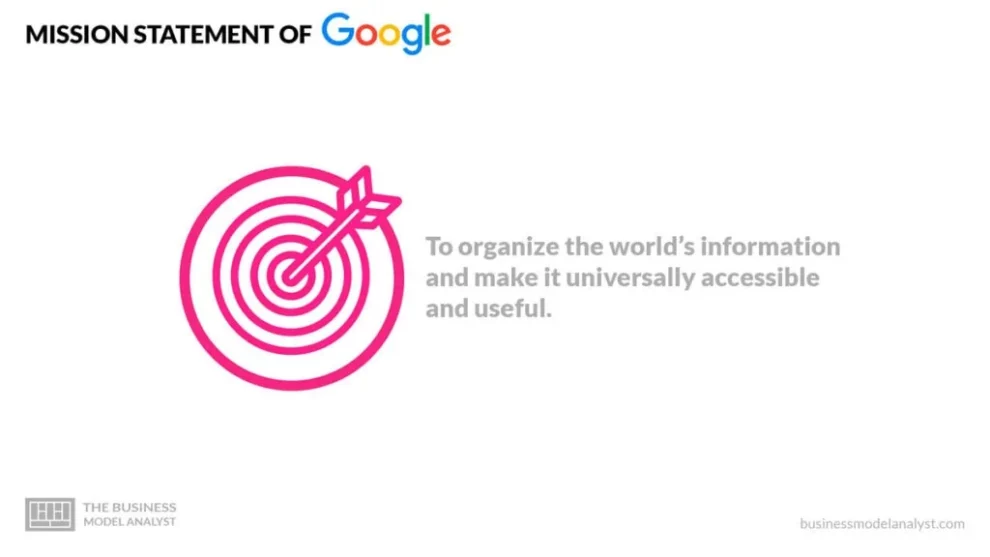Few corporate mission statements carry as much weight—or spark as much curiosity—as Google’s famous pledge to “organize the world’s information and make it universally accessible and useful.” At first glance, it sounds ambitious but vague. Yet, beneath those ten words lies a sweeping vision that has shaped the internet, redefined knowledge accessibility, and propelled Google into becoming one of the most influential companies in history.
This mission isn’t just a slogan; it’s the driving force behind nearly every Google product, algorithm update, and strategic acquisition. But what does it really mean? How has Google pursued this goal, and what are the implications—both positive and controversial—of such an enormous undertaking?
The Origins of Google’s Mission
When Larry Page and Sergey Brin founded Google in 1998, the internet was a disorganized, rapidly expanding universe of data. Early search engines like AltaVista and Yahoo relied on rudimentary keyword matching, often delivering irrelevant or spam-filled results. Page and Brin saw a better way: an algorithm (PageRank) that ranked pages based on their authority and relevance rather than just keyword density.
From the beginning, their mission wasn’t just about building a better search engine—it was about structuring chaos. The phrase “organize the world’s information” wasn’t hyperbole; it was a literal goal. Google didn’t just want to index the web; it wanted to make sense of it.
Breaking Down the Mission Statement
1. “Organize the World’s Information”
This part of the mission is about structure—taking raw data and making it meaningful. Google doesn’t just collect information; it categorizes, ranks, and connects it.
- Search Algorithms – Google’s core technology sorts through billions of web pages, ranking them based on relevance, authority, and user intent.
- Knowledge Graph – Launched in 2012, this system understands relationships between facts (e.g., connecting “Leonardo da Vinci” to “Mona Lisa” without explicit keyword matches).
- AI and Machine Learning – Tools like BERT and RankBrain interpret natural language, making search more conversational and intuitive.
But Google’s definition of “information” goes beyond web pages. It includes:
- Books (Google Books has scanned over 40 million titles)
- Images and Videos (Google Images, YouTube)
- Geographic Data (Google Maps, Street View)
- Personal Data (Gmail, Google Drive, Calendar)
2. “Make It Universally Accessible”
Accessibility is a cornerstone of Google’s philosophy. This doesn’t just mean “available to everyone”—it means breaking down barriers:
- Language – Google Translate supports over 100 languages, enabling cross-border communication.
- Cost – Most Google services are free, funded by ads, lowering the entry barrier to information.
- Device Agnosticism – Whether on a smartphone, desktop, or smart speaker, Google ensures seamless access.
- Global Reach – Google operates in nearly every country (except where blocked by governments), bringing internet access to remote areas via projects like Loon (now discontinued) and Google Station.
3. “And Useful”
Information is only valuable if it serves a purpose. Google’s focus on utility drives features like:
- Featured Snippets – Direct answers at the top of search results.
- Local Business Listings – Helping users find nearby services.
- Real-Time Updates – Flight statuses, stock prices, sports scores.
- Personalization – Tailoring results based on user history (while raising privacy concerns).
How Google Executes This Mission
Beyond Search: A Growing Ecosystem
Google’s mission extends far beyond its search engine. Nearly every product ties back to organizing or disseminating information:
- Google Scholar – Academic research made searchable.
- Google Arts & Culture – Digitizing museum collections.
- Google Health – Aggregating medical data (with appropriate safeguards).
- Waymo – Even self-driving cars rely on processing vast amounts of real-time data.
The Role of AI and Machine Learning
Artificial intelligence is now central to Google’s mission. Projects like:
- DeepMind (AI research)
- LaMDA (conversational AI)
- Multisearch (searching with images and text)
…show that organizing information isn’t just about cataloging—it’s about understanding it.
The Controversies and Challenges
Google’s mission, while noble, has sparked debates:
1. Privacy Concerns
To organize personal data (emails, location history, search habits), Google collects vast amounts of user information. While this enables personalized services, it also raises surveillance concerns.
2. Monopoly and Antitrust Issues
Critics argue Google’s dominance stifles competition. By controlling search, ads, browsers (Chrome), and mobile OS (Android), it holds unparalleled influence over information flow.
3. Misinformation and Algorithmic Bias
Automated systems sometimes amplify harmful content. Google struggles to balance open access with preventing the spread of fake news, hate speech, and manipulative media.
4. Cultural and Political Implications
When one company organizes global information, whose worldview prevails? Decisions on censorship (e.g., complying with China’s restrictions) or demonetization (e.g., YouTube policies) have far-reaching consequences.
The Future of Google’s Mission
As technology evolves, so does Google’s approach:
- Generative AI – Projects like Search Generative Experience (SGE) aim to synthesize information rather than just list links.
- Quantum Computing – Could revolutionize data processing.
- Ethical AI – Increasing focus on fairness and transparency.
Yet, the core mission remains unchanged. Whether through AI, wearables, or undiscovered technologies, Google will continue striving to make information accessible—for better or worse.
Google’s mission to “organize the world’s information” is more than corporate branding—it’s a radical, ongoing experiment in democratizing knowledge. The company has succeeded in making vast amounts of data instantly available, reshaping education, business, and communication.
But with great power comes great responsibility. As Google navigates privacy, monopoly, and ethical dilemmas, the world watches closely. One thing is certain: the way information is organized influences how we think, learn, and interact. And that makes Google’s mission one of the most consequential endeavors of the digital age.
















Add Comment